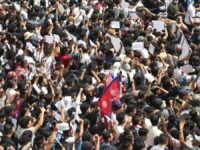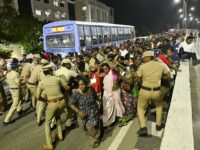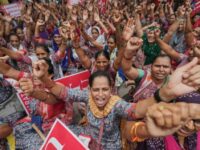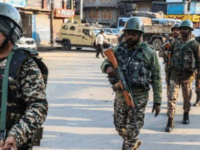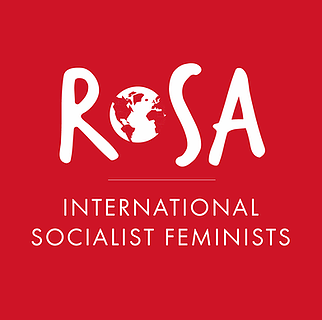The Unfinished Tasks of Bangladesh’s Uprising
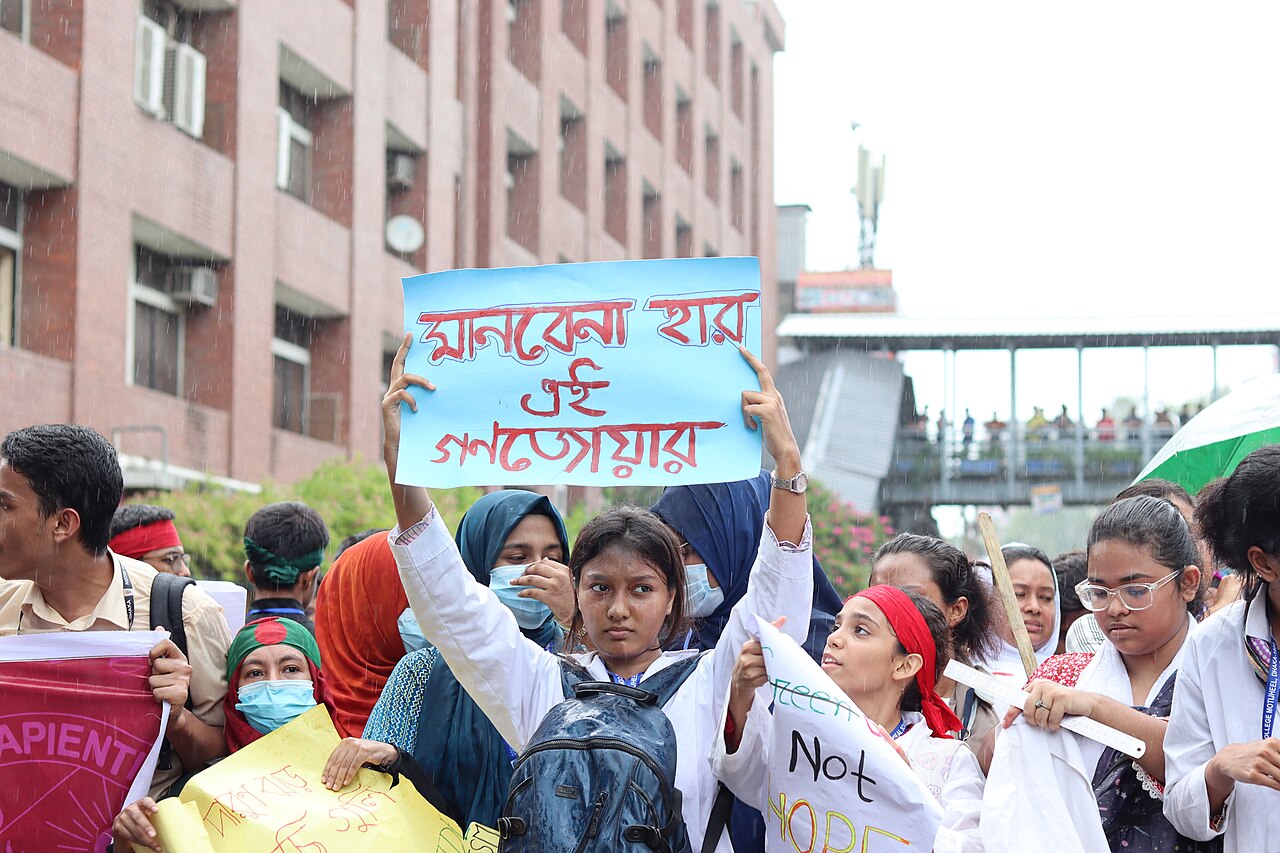
The lava of the volcanic popular uprising that toppled autocratic ruler Sheikh Hasina in Bangladesh on August 5 is still searing. High point of a heroic and fearless student-led revolt, Hasina’s departure has liberated revolutionary energies and raised huge aspirations for change. But various forces are conspiring to stifle these aspirations, seeking to contain them within the very system that has nurtured Hasina and the Awami League’s loathed regime.
Many commentators have rushed to spin the narrative that while Hasina’s regime had become deeply undemocratic, it had overseen great economic success. It is as if the mass revolt, born from rampant joblessness and extreme corruption, had not just happened; as if the police had not, less than a year ago, shot and arrested en masse garment workers protesting their starvation wages. As if close to 30% of the population was not suffering from severe food insecurity.
The new 17-member provisional government, led by former Nobel Peace Prize laureate Muhammad Yunus, was assembled at the behest of the leaders of ‘Students Against Discrimination’, the platform that led the student protests.
On the one hand, the army and bureaucratic establishment’s readiness to concede, as the country’s new figurehead, a person chosen by representatives of the uprising reflects the huge societal impact and pressure of that movement. Besides, the military leadership deemed it too risky to seize power directly. The masses were in no mood to let their struggle be hijacked by a military takeover —a sentiment shaped by Bangladesh’s history of military rule and coups— and the generals understood that such a move could easily have rekindled the flames of the mass movement.
On the other hand, this concession also stems from the fact that, as a IMF-inclined neoliberal multi-millionaire, Yunus is a safe pair of hands for capitalism —with the added bonuses that he attracts significant sympathy from the protesting youth due to his victimization by Hasina’s regime, and presents himself as above the fray of ‘partisan politics’. This latter stance suits with the widespread distrust towards all established political parties, including the main opposition groups, the right-wing BNP (Bangladesh Nationalist Party) and Jamaat-e-Islami.
The student leaders have opted for a strategy of positive engagement with the new interim administration. However, while it harbors some critics of the previous authoritarian regime, this government has been orchestrated under military supervision, is showing no propensity to challenge big business interests in any manner whatsoever, and has no organic connection to the very social forces that fought and bled to overthrow the old order. In these conditions, the appointment of two young university students as cabinet ministers is a mere token gesture, as they will be reduced to pawns in a ruling team intent on taming the mass movement and maintaining the capitalist status quo under the guise of restoring “investors’ confidence”.
Uprooting the old structures
Although there is a prevailing wait-and-see attitude towards Yunus, with hopes that he will deliver, mobilisations —while currently less intense— have not subsided. Students and working people remain determined to dismantle the remnants of the former regime. Beyond demanding that the killers of the protesters be tried, they have been rallying in various sectors to purge the state apparatus, the public administration and private institutions from Awami League loyalists involved in the bloody suppression of the uprising and in past corruption.
The judiciary has been swept clean of the Chief Justice and six Appellate Division judges who were complicit with the old regime, after hundreds of protesters surrounded the Supreme Court. The governor of Bangladesh’s central bank resigned days after the bank’s headquarters were stormed by protesters, and employees at several private banks have demanded the removal of directors connected to the Awami League government. At least 18 public university vice-chancellors have been forced out since the ouster of Hasina due to ongoing student mobilisations. The chairman of the National Board of Revenue, as well as the director-general of the ‘Shilpakala Academy’ (public national cultural centre of Bangladesh) have also been forced to resign. The inspector general of police was removed, and rebranding efforts have been made at the top of the police force, as even lower-ranking cops have protested demanding that the higher officials who ordered the shooting of protesters be brought to justice.
This ongoing struggle to sweep away old regime cronies and corrupt officials must go deeper. The problem cannot be solved by merely removing a few rotten apples, important as that is. The deeply entrenched structures that have upheld an exploitative and oppressive system must be torn down, and replaced with structures that serve the majority. Democratically elected committees of workers and students, with representatives who are fully accountable and subject to recall by those who elected them, must be empowered to take the lead in this transformation.
This is also important to avoid new officials being parachuted from the top, by the new unelected government, rather than coming from a people’s mandate. For example on Monday 19, the government arbitrarily appointed administrators for 61 district councils across the country, as the original chairmen and mayors of the district councils and municipalities went into hiding following Hasina’s removal. Instead, the movement should advocate for residents to come together and elect their own local councils, composed of representatives who live, work, and struggle within their communities. These councils could serve as open democratic forums where the residents could deliberate, and choose representatives who truly reflect their interests and concerns.
A vast network of committees and councils, linked on a national scale, could form the backbone of a government issued from the midst of the uprising, defying and eventually seizing political power from the capitalist state machine, placing it in the hands of the revolutionary people. This might sound like a daunting proposition; but the multitude of popular initiatives undertaken in the flow of the mass movement —including maintaining law and order in Dhaka city for days in the absence of the police— demonstrates the undeniable potential of Bangladesh’s youth and working people to effectively manage public affairs.
Revolution means rupture, not continuity
Now is the moment for all sections of the working class and the oppressed to assert their demands and aspirations.
Women, who have been at the forefront of the movement, and also form the backbone of Bangladesh’s strategic garment sector, have their own specific expectations —and their voices, like those of all the oppressed sections of society, will be vital in shaping the direction of the movement. Last Friday, thousands marched under the banner ‘Awaaz Tolo Nari’ (Raise Your Voice, Women) at Dhaka University, standing in solidarity with the ongoing protests over the rape and murder of a woman trainee doctor in Kolkata, India, and with rape victims worldwide. Students observed an “Occupy the Night” programme demanding a fair investigation and justice for every rape case in Bangladesh following the mass uprising. This inspiring act of cross-border solidarity not only underscores the shared struggles and interconnected oppressions faced by the people of Bengal and India; it also emboldens Bangladeshi women to fight for safety and equality, and confront gender violence, sexism, and patriarchy within their own country.
The insurgent masses, in all their diversity, must shape their future through their own collective action; they must strive to build a revolutionary leadership from within and not place their hopes in unelected politicians who, despite professing to speak in their name, have played no active role in the uprising.
Yunus may talk of a “second revolution”, but this rhetoric rings hollow when placed alongside his promises for continuity in the garment industry. “We will not tolerate any attempt to disrupt the global clothing supply chain, in which we are a key player”, he said. This is effectively pledging to uphold the very system that has subjected workers to relentless exploitation, ensuring that the suffering of the workforce stays unchallenged and the profits of multinational brands remain unaffected.
This stands in stark contradiction with the needs of garment workers, who are demanding from the transitional government a doubling of the minimum wage, childcare for the workers’ children, an extension of paid maternity leave to six months, complaints committees for sexual harassment in factories, the right to organize unions, and justice for those killed or injured during the protests.
While under pressure and fear of a broader backlash, the caretaker administration might take limited steps to create the illusion of change, this government will inevitably find itself on a collision course with the working class. One cannot simultaneously satisfy the workers’ thirst for a transformation of their lives, and safeguard the profits of sweatshop owners and major corporations.
Similarly, no resolution to the country’s myriad social problems can be achieved while adhering to the IMF’s austerity diktats —which Yunus has shown no sign of questioning. As Bangladeshi author and political analyst Farid Erkizia Bakht noted, “Economic management, under strict IMF austerity restrictions, will box him in”.
The masses must chart their own course through struggle, revolutionary initiative, and independent political organization. Recent events have shown that every concession or retreat by the ruling class came when they felt the hot breath of revolution on their necks. It wasn’t General Waker-Uz-Zaman’s righteousness that pushed Hasina out of power, but the defiance of young officers and soldiers who refused to be the enforcers of her crumbling rule. The dissolution of Parliament wasn’t a gift from the President but a direct result of the population flooding the streets and demanding it. It is not Yunus’ calls for harmony and unity that curbed communal attacks, but the initiatives taken from the ground-up by students and ordinary Bangladeshis, forming nightly neighbourhood watch groups to protect religious minorities and posting volunteers in front of Hindu homes, shops and temples.
The interim government, despite its promises, cannot and will not deliver the deep changes necessary to address the root causes of the uprising. It is the collective power of the masses, organized in democratic and accountable structures, that must drive this revolutionary change forward. But truly securing the future that the people of Bangladesh are fighting for will require equipping this struggle with a clear program that breaks decisively with capitalism, the system that produces multiple and worsening crises and fuels similar social rebellions in various parts of the globe.
Capitalism is also the chief driver of climate change, which is causing extreme weather events to become increasingly frequent and intense. Bangladesh is one of the most vulnerable to this phenomenon. The ongoing floods in the southeast, which have stranded 3 million people and left hundreds of thousands without electricity, are just the latest in a series of devastating floods affecting the country this year. This situation will only worsen so long as this profit-driven system stands on its feet.
The demands outlined below, which we welcome feedback on, are, in our view, essential steps toward achieving the revolutionary socialist transformation necessary to fulfill the unfinished tasks of Bangladesh’s uprising:
- Immediate justice and accountability for the killings of protesters, proper compensation to the martyrs’ families, and free medical treatment for all the injured
- Abolish and disband the murderous Rapid Action Battalion (RAB) and all paramilitary leagues and groups connected to the former ruling party
- Demand India’s handover of Sheikh Hasina and other Awami League fugitives for trial in Bangladesh
- No trust in the interim government and in any government based on capitalism, nor in any political undertakings that are not subject to the masses’ democratic control.
- Elect a Constituent Assembly through a free and democratic process with representation from all sections of society, excluding those involved in the repression and exploitation of the Bangladeshi people.
- Implement grassroots price control measures to regulate commodity prices; advocate for a living wage across all sectors and adjust all wages according to the cost of living
- Create jobs for the unemployed by shortening the working week without reducing pay
- Halt investment in megaprojects with questionable benefits for the poor; redirect resources to people’s basic needs, essential public services like health and education, and infrastructure projects that are socially useful and respectful of the environment
- Confiscate all assets of Sheikh Hasina’s family and Awami League cronies
- Open the books to workers’ and students’ inspection, to disclose and eliminate profiteering and corruption in all public and private institutions.
- Take firm measures to halt capital flight and money laundering — reclaim the vast wealth laundered abroad by oligarchs tied to the former regime
- Form committees of the uprising in all workplaces, schools, colleges, universities, and neighbourhoods. These committees should be interconnected, creating a network that serves as the foundation for a future revolutionary government, one that remains true to the aspirations of the uprising.
- Bring the garment industry, banks, energy, telecommunications, and other key sectors of the economy under public ownership and workers’ control, with a view to re-organise the economy based on democratic planning
- Reject communal divisions, persecution, and attacks on religious and ethnic minorities; uphold equality of rights for all, including Bengali Hindus and Rohingya refugees
- Resist meddling and interference by all foreign powers; refuse the extortionate foreign debt servicing and the harmful austerity deals with the IMF
- Stand in international solidarity with all workers and oppressed people in struggle; support the Bangladeshi uprising and the ongoing revolt of doctors, women, and youth in India against gender-based violence.
- Promote a global fight against capitalism and imperialism; for a socialist Bangladesh, and a socialist world.

